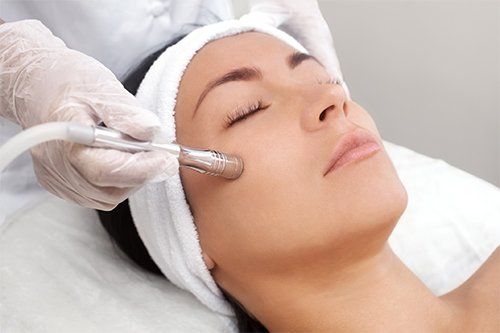Blog Post

San Antonio’s Best
San Antonio’s Best
Experience the skin care experts at San Antonio Skin & Cancer Clinic.
Button
Your Skin, Your Care
Your Skin, Your Care
Love the way you look, get started with your skin.
Button
Expert Diagnostics
Expert Diagnostics
We’ll help you stay aware and stay healthy from cancer.
Button-

Give Us a Call
Give Us a Call
Don't be shy, pick up the phone. Your appointment is one call away.
Button
7 Signs That You Could Benefit From Working With a Dermatologist
- By Admin
- •
- 18 Jan, 2018

Your skin is one of your largest and most sensitive body parts. You likely take daily steps to care for your skin, such as using lotion and staying adequately hydrated to combat dryness. However, many individuals do not have the expertise or tools necessary to address all of their skin complaints on their own.
In these situations, a dermatologist can offer the insight and treatments necessary for comfortable, blemish-free skin as well as proactive steps toward identification and management of skin conditions.
In this blog, we list seven characteristics that may indicate that you could benefit from scheduling a consultation with a dermatologist to discuss the health and beauty of your skin.
1. Changes in Sweat Patterns
By adulthood, you likely know when and how much you can expect to sweat in stressful situations, during physical activity, or when exposed to high temperatures. Diabetes, hyperhidrosis, or thyroid disorders call all cause sweating disorders.
If you notice this symptom, discuss your health with a dermatologist to determine if any underlying conditions are causing you to sweat excessively.
2. Chronic Skin Irritation
Skin irritation can develop due to numerous causes, from allergies to scrapes. Most skin irritations should dissipate within a few days. If you have skin irritation that persists or goes away and then reoccurs multiple times, talk to a dermatologist.
Rashes, bumps, itchiness, and other types of chronic skin irritation can come from skin disorders like eczema that require professional medical care to eliminate your discomfort.
3. Nail Health Issues
Dermatologists see patients for a broad range of issues, including nail and hair health as well as skin health. If the appearance or feeling of your nails changes significantly, the alteration may indicate an issue with your nail or overall health.
See a dermatologist if your nails change shape, become discolored, or develop a fungal infection.
4. Persistent Acne
Acne is a nearly universal part of puberty. However, normal acne should not last for long periods of time, cause serious pain, or scar. If your acne persists into adulthood and resists other forms of treatment, consult with a dermatologist.
Prescription cleansers or medication may be a critical part of resolving your acne issues.
5. Risk Factors for Skin Cancer
One reason you might routinely visit your dermatologist's office is for annual skin cancer screenings. While most adults should schedule these screenings each year, you should prioritize screenings if you exhibit risk factors for skin cancer.
These risk factors include a family history of skin cancers, irregularly shaped moles, fair skin, history of sunburns that blistered, and rashes with scaly textures.
These risk factors include a family history of skin cancers, irregularly shaped moles, fair skin, history of sunburns that blistered, and rashes with scaly textures.
6. Sudden Skin Health Changes
Any time the comfort, feeling, or appearance of your skin changes without an obvious explanation, you may want to consult with a dermatologist. Just like your sweat patterns and nails, your skin can reveal a lot about your overall health.
Implementing the changes recommended by your dermatologist can keep your skin health more consistent in the future.
Implementing the changes recommended by your dermatologist can keep your skin health more consistent in the future.
7. Unexplained Hair Loss
Hair loss afflicts many individuals, some of which cannot avoid this change due to genetic predisposition or certain health conditions. However, many individuals deal with hair loss not knowing that the recommendations of a dermatologist could slow or stop their hair loss entirely.
Additionally, dermatologists can perform or prescribe the treatments for irreversible hair loss, such as transplants and laser procedures.
If you experience one or more of the signs listed above, prioritize scheduling a consultation with a dermatologist as soon as possible to address your skin complaints and maintain the health of your skin.
For comprehensive dermatology services, including skin cancer screening procedures, trust the San Antonio Skin & Cancer Clinic.
Share
Tweet
Share
Mail
San Antonio Skin & Cancer Clinic
Medical Tower 1
7950 Floyd Curl Drive
Suite 909: 210-614-3575
Suite 909: 210-614-4185
San Antonio, TX 78229
YP Reviews
Your feedback is important!




Insurance
Content, including images, displayed on this website is protected by copyright laws. Downloading, republication, retransmission or reproduction of content on this website is strictly prohibited. Terms of Use
| Privacy Policy

 210-614-3575
210-614-3575






